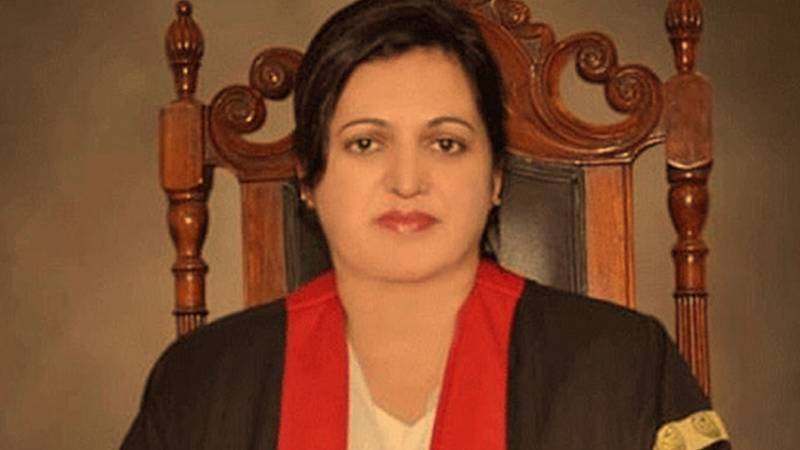
Lahore High Court's Chief Justice Aalia Neelum has halted unnecessary expenses in the district judiciary, whereby a billion rupee video link project was to be executed.
On her directions, a letter for purchasing and installing additional equipment for video link facilities at the district judiciary have been withdrawn.
The project was due to be executed after a circular was issued by her predecessor last month as part of a project to set up e-courts in the province.
As an administrative judge for information technology (IT), Chief Justice Neelum formulated the standard operating procedures (SOPs) for providing video link facilities in courts across the province. The former chief justice of the Lahore High Court and the court's administrative committee approved her SOPs, which were subsequently implemented in the district judiciary throughout the Punjab.
However, Chief Justice Aalia Neelum has directed to halt the implementation of the order. Despite the decision to halt the process of procuring video link equipment, she has asserted that video link facilities would continue to function with existing equipment in the district judiciary. She noted that all the district courts already have video link systems installed, while district judges have laptops with the facility of Wi-Fi internet connections, which can be used for the purpose, but it should be ensured that the facilities continue to function in the district courts and disruption-free online recording of evidence and statements among other judicial proceedings.
Therefore, considering the current economic situation in the country, unnecessary expenses are not justified, CJ Neelum concluded and ordered the withdrawal of the circular, halting all unnecessary purchases in the district judiciary.
During his tenure, former Lahore High Court (LHC) Chief Justice Malik Shahzad Ahmed Khan issued a directive on June 7, 2024, to establish e-courts.
The directive emphasised the implementation of arrangements in all district courts to facilitate recording of testimonies, witness statements, and the presentation of evidence via video link. Key provisions outlined in the directive included deploying essential equipment such as computers, cameras, microphones, and a 43-inch LED screen.
Furthermore, the directive specified using video links to gather testimony, witness statements, and evidence through various platforms, including landlines, WhatsApp, iMessage, Facebook, and Skype.
Additionally, there was a directive to integrate existing computers in session, civil, and magistrate courts, with provisions for installing additional video links and computer units where required.
District courts were instructed to procure additional IT equipment as necessary within their allocated budgets.
Completing all requisite actions within a six-week timeline from receiving the directive was mandated.
Subsequently, the former registrar issued a circular to all the district and session judges to purchase equipment for video link facilities for online recording of evidence, statements, and other judicial proceedings. According to data received from the district judiciary, the estimated cost of the required equipment was around a billion rupees.

